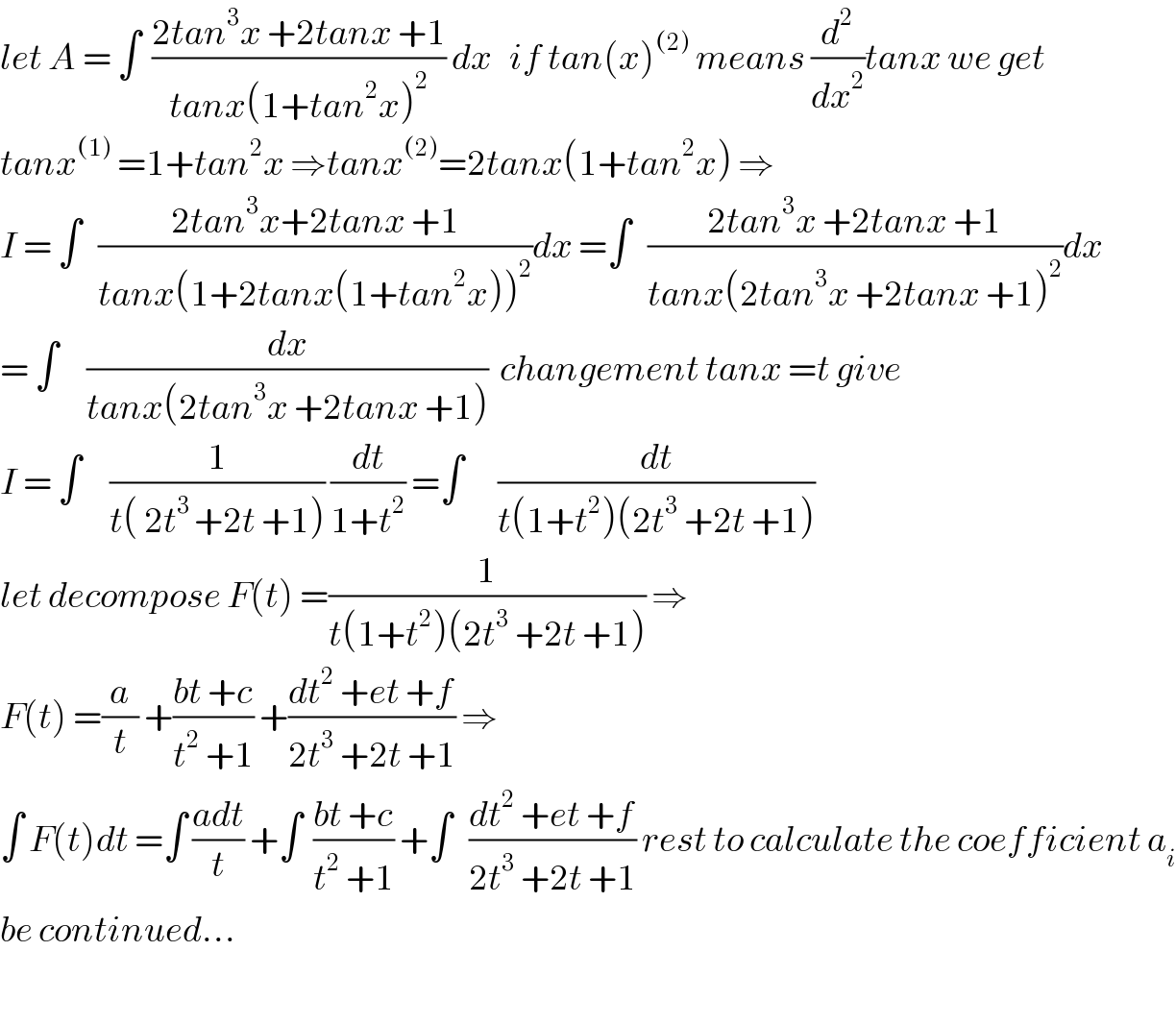
Question and Answers Forum
Question Number 63351 by aliesam last updated on 02/Jul/19

Commented by mathmax by abdo last updated on 03/Jul/19

Commented by mathmax by abdo last updated on 03/Jul/19

Answered by Rio Michael last updated on 02/Jul/19

Commented by MJS last updated on 02/Jul/19
![(d/dx)[ln (x^2 −6x+13)]=(1/(x^2 −6x+13))×(2x−6) so you′re wrong](Q63353.png)
Commented by Rio Michael last updated on 04/Jul/19

Answered by MJS last updated on 03/Jul/19
![∫(dx/(4+(x−3)^2 ))= [t=((x−3)/2) → dx=2dt] =(1/2)∫(dt/(t^2 +1))=(1/2)arctan t =(1/2)arctan ((x−3)/2) +C](Q63354.png)
Commented by aliesam last updated on 03/Jul/19

Answered by MJS last updated on 03/Jul/19
![the 2^(nd) one cannot be solved with tan (x^2 ) but it′easy like this: ∫((2tan^3 x +2tan x +1)/(tan x (1+tan^2 x)^2 ))dx= [t=tan x → dx=dtcos^2 x] =∫((2t^3 +2t+1)/(t(t^2 +1)^2 ))dt=∫(−(t/((t^2 +1)^2 ))−(t/(t^2 +1))+(2/(t^2 +1))+(1/t))dt= =(1/(2(t^2 +1)))−(1/2)ln (t^2 +1) +2arctan t +ln t ...](Q63356.png)
Commented by aliesam last updated on 03/Jul/19

